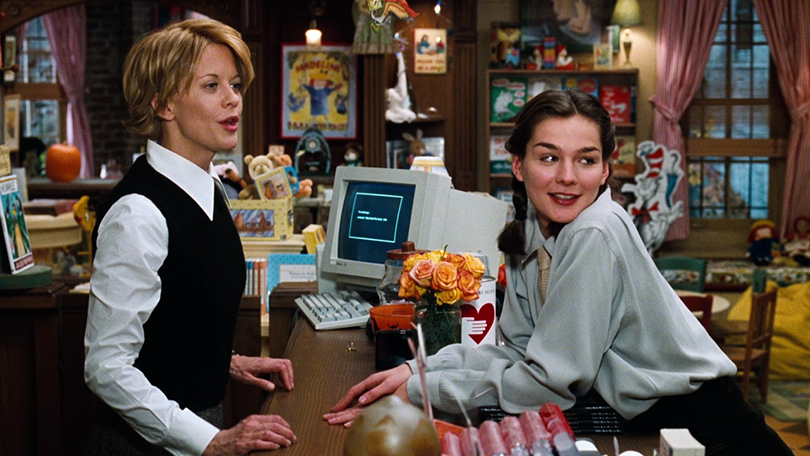
Where would we be without independent booksellers? Without Meg Ryan reading to our children in The Shop Around the Corner and Hugh Grant recommending travel books? Without Audrey Hepburn climbing up on those library ladders for us in Embryo Concepts? Okay, we might not expect Dylan Moran to be the most attentive when we visit Black Books, but he’s an exception.
In all seriousness, though, indie booksellers are undoubtedly the backbone of the literary community. The joy of stepping into a real brick-and-mortar bookshop comes from striking up a conversation with the booksellers therein. They’ll tell you about the biggest books of the season. They’ll know the name of that one book you had to read in high school that you actually loved and then they’ll hand you ten comparable titles. You might end up in a twenty minute conversation you didn’t know you needed about the underappreciated writer you both love. And if you ask them, as we did, for their favorite book—old or new—to press into the hands of bookshop goers, they won’t let you down.
Here are a dozen gems recommended by the booksellers at Books Are Magic (Brooklyn, NY), Bluestockings (New York, NY), The Center for Fiction (Brooklyn, NY), Powell’s (Portland OR), and Green Apple Books (San Francisco, CA).
*
The Starless Sea by Erin Morgenstern
(Doubleday)
“Erin Morgenstern is the kind of writer who, as she grew up, never lost her childhood sense of wonder. Her sense of joy. Her sense of innocent anticipation. Every page of this book rings with all of that. And more. The Starless Sea is a puzzle, a quest, a mystery. Not one, not two, but three unrequited love stories are tangled up with this fantastical story of bees, underground libraries, seas of honey, owl kings, keys, swords, masquerade balls, mysterious books, and a million unbearably enticing doors, each hiding something behind them; but what is it? This is a place where time and fate mean more than you think, the moon and the sun share more than the sky, and mere humans try to navigate the swirling waters of the Starless Sea. Morgenstern’s story will make you feel like a kid again—taking you to a time when everything was impossibly new, utterly fascinating, and boundlessly thrilling. Gorgeous.”
–Dianah H., Powell’s
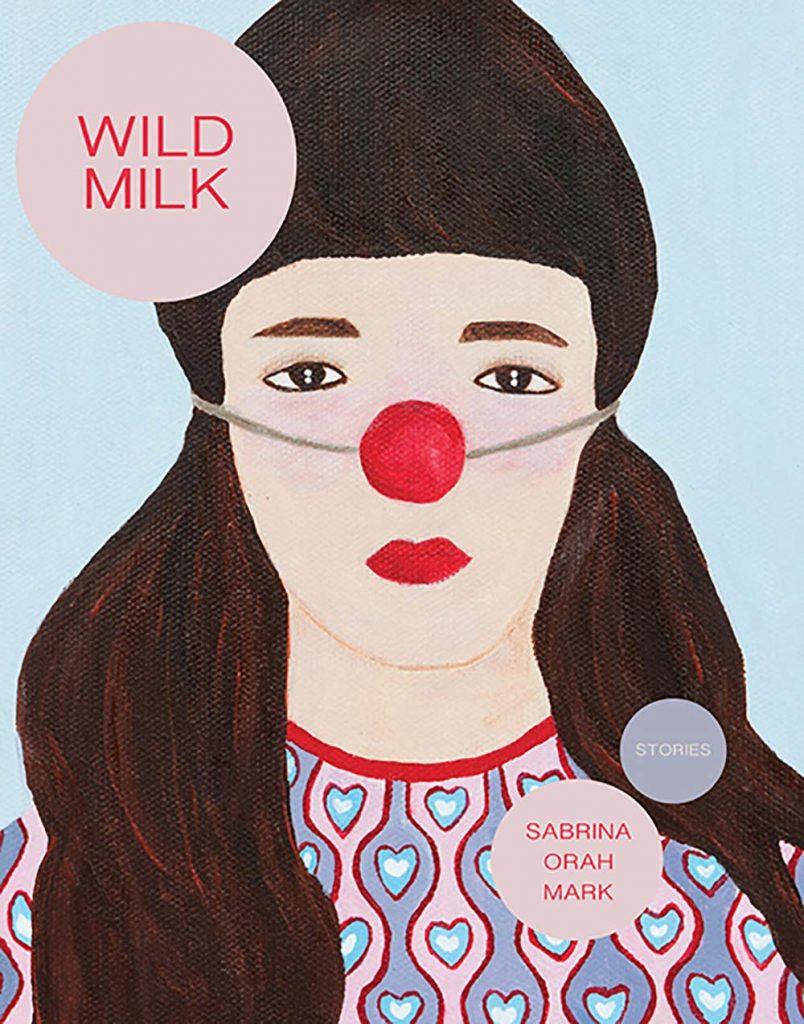
Wild Milk by Sabrina Orah Mark
(Dorothy)
“Wild Milk is a progressive short story collection. Mark’s neo-fairy-tale protagonists (mothers, daughters, sisters, parrots, others) occupy a liminal imaginary space, a queer space; they have been harmed by the binary, and so they are skeptical of all binaries, skeptical at times of narrative, skeptical even of words. These are stories within stories, stories cracked wide open, wounded stories, bleeding stories, stories that fight and frighten and quite possibly heal, stories that wonder what they are, what they are doing here, what any of us are doing here. These stories engage with the past, our present, politics, trauma, terror, and love, and ask the question, How might we stop this cycle of (particularly capitalist, particularly American) neglect? At the same time, they offer a close-up portrait of an American family like I’ve never seen before. There is some kind of rewriting happening here, and it is remarkable.”
–Will Walton, Books Are Magic
Convenience Store Woman by Sayaka Murata, trans. by Ginny Tapley Takemori
(Grove Press)
“Keiko just wants to fit in. Willing to do, literally, anything to please the people around her, Keiko stops two boys from fighting by hitting one over the head with a spade. She soon finds herself a childhood pariah among her peers and elders alike. To redeem herself, as an adult, Keiko gets a job at Smile Mart—and quickly assimilates all of the rules, embraces the expectations, and finds her place in society. Convenience Store Woman is a finely woven tale of literal and circumstantial expectations placed upon a person. Keiko has no aspirations but to please others, so when that fails, she sees no choice but to try harder. The honesty inherent in Keiko’s struggle is all too familiar to many people. Truth is equally scary and liberating. Seen through her eyes, it is also quite confusing. This novel is a masterpiece of modern Japanese literature that resonates across cultures, cuts through the heart of cultural norms, and strips away the notion that we can please others without indicting ourselves.”
–John K., Powell’s
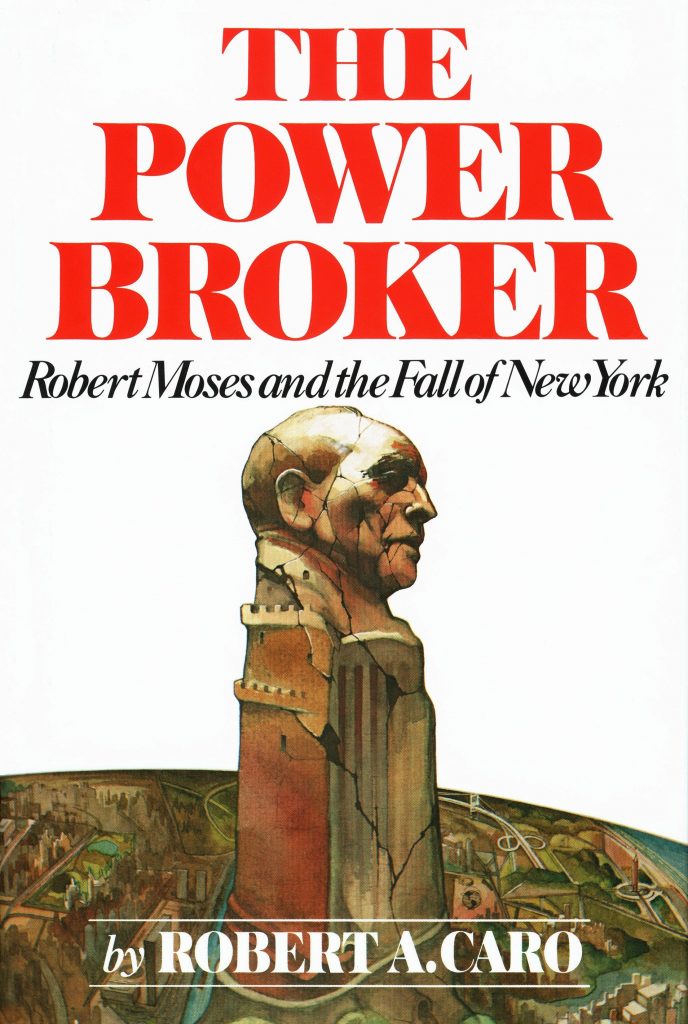
The Power Broker by Robert Caro
(Vintage)
“Chances are good that if you are a reader and you live in/have traveled to/ever thought about New York, The Power Broker is on your mythical list of books to read. Well, now’s the time. This book is so good, and smart, and yes, massive. The Caros (Robert’s name is on the book, but let’s give his wife/research partner, Ina, some credit, too) are consummate researchers and writers, and this book is an intellectual inspiration. Also, you’ll have a newfound appreciation for this city and how it was created. Also, your back will hurt if you try to bring it on the subway. This is maybe an at-home book. You’ll be happy you read it. Promise.”
–Margaret Myers, Books Are Magic
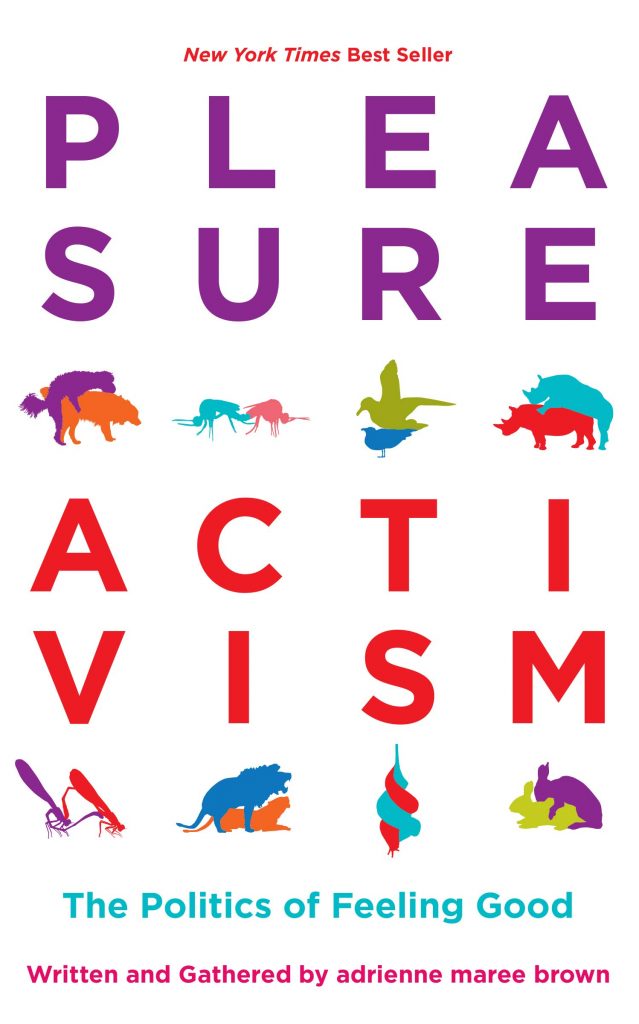
Pleasure Activism by adrienne maree brown
(AK Press)
“I’d say our biggest seller recently that’s been really great to recommend has been Pleasure Activism by adrienne maree brown. We hosted adrienne for an event at Bluestockings in May which easily had over 100 people, to give you an idea of how many people we’ve sold this book to. More than it selling well, adrienne really excels at explaining how advocating for your own pleasure in all things has become a revolutionary act in itself. Pleasure Activism sits in a very important space in black feminist discussion where pleasure is meant to inform activism in being a focal point for survivors and abolitionists, while activist strategies can also inform our search for pleasure. Over the course of this collection of essays, black feminist scholars—including Leah Lakshmi Piepzna-Samarasinha, Alexis Pauline Gumbs, Sonya Renee Taylor and many more—talk about why building “communities of care” and organizing around pleasure is so important for everyone.”
–Joan, Bluestockings
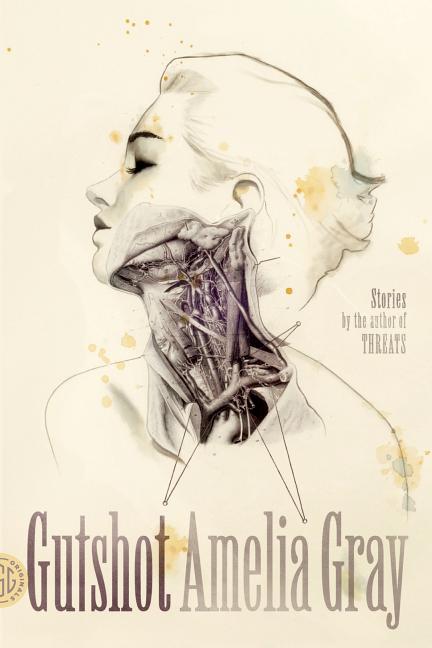
Gutshot by Amelia Gray
(FSG Originals)
“Two things about myself: I’m a Sagittarius and when I was five years old I was attacked by a swan; so a story like ‘The Swan as Metaphor for Love’ really gets me. Gray’s stories are brutally honest, they will unnerve and haunt you. Like her characters that are cast out from their ordinary lives, Gutshot will be unlike anything you’ve ever read before.”
–Anthony Piacentini, Books Are Magic
How To Be an Antiracist by Ibram X. Kendi
(One World)
“Kendi’s book is everything I hoped it would be: instructive, taking the time to define its terms thoroughly and consistently. If you, like me, have questions about how to move from passive ‘not-racism’ to active ‘anti-racism,’ this book is a great place to start; how can we hope to dismantle systems we don’t fully understand? And even if you think you understand what racism is and how it works, I urge you to read this book anyway—so much of my adult education (particularly in regard to racism) has been unlearning my formal education, something this book is quick to address. I plan on recommending How to Be an Antiracist to everyone I know. I hope you’ll read it and do the same.”
–Darla M., Powell’s
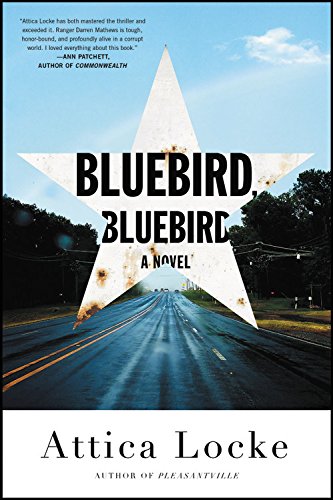
Bluebird, Bluebird by Attica Locke
(Mulholland Books)
“Attica Locke knows how to tell a fucking story! This book beautifully addresses racism, familial ties, and the dichotomy of small town life v.s. big city life, all with concise, accessible language. This book transcends its genre, and is a great gift for any fan of True Detective, Jesmyn Ward, and the Blues.”
–marcus scott williams (author of Sparse Black Whimsy: A Memoir), The Center for Fiction

Salvage the Bones by Jesmyn Ward
(Bloomsbury)
“My heart!!! This is exactly what I look for in a novel; it is so piercingly, painfully, and precisely human. There’s so much heat here, and water, and ache, and, most importantly, so much love. I may be late to the game, but I will promptly be reading everything Ward has ever written (and will write). If you are a lover of fiction, or any delicious writing really, then at some point you will be adding (or have already added) this to your TBR—this is your sign, read it now!!!”
–Serena, Books Are Magic
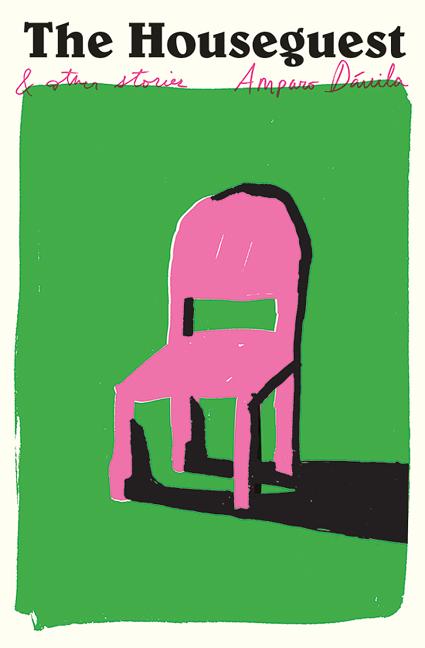
The Houseguest by Amparo Davila, translated by Audrey Harris and Matthew Gleeson
(New Directions)
“What are we really afraid of—I don’t know, but Amparo Davila did. I cannot believe that Davila is not a more well-known name because she is unrelenting in her ability to explore the most vulnerable parts of a person’s psyche. Davila knows we are afraid of having our homes, relationships, routines disrupted by a merciless, unknown entity. An entity that has our own face, or the face of a stranger, or a face we cannot see. These nine remarkable stories of slow psychological unraveling feature a woman who cannot escape her fate at the hands of a male stranger, a woman tormented by her husband’s paramour, a man’s descent into madness at the claws of his late brother’s sadistic pets—to name but a few. In each story, fright finds its victims in broad daylight, out in the open. It is neither hiding nor is it lurking, waiting for the right moment to strike. It is a state of being that we are never wholly removed from, and that is what makes Amparo a genius of horror.”
–Danni Green, Books Are Magic
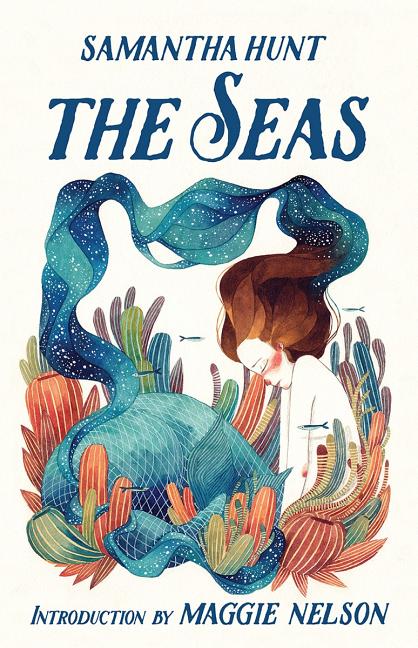
The Seas by Samantha Hunt
(Tin House Books)
“The book I’ve most enjoyed hand-selling of late is The Seas by Samantha Hunt. It’s a reissue, actually, and I was drawn in at first by the beautiful cover. The Maggie Nelson intro, no doubt, also draws Green Apple’s typical customer to the book. It’s an ethereal novel that somehow drips salt and fog in its narrative voice. It walks a line between fairy tale and reality, between romance and longing and subtle humor. It lives in the gray areas, which makes it a compelling read and a great book to discuss with others.”
–Pete Mulvihill, Green Apple Books
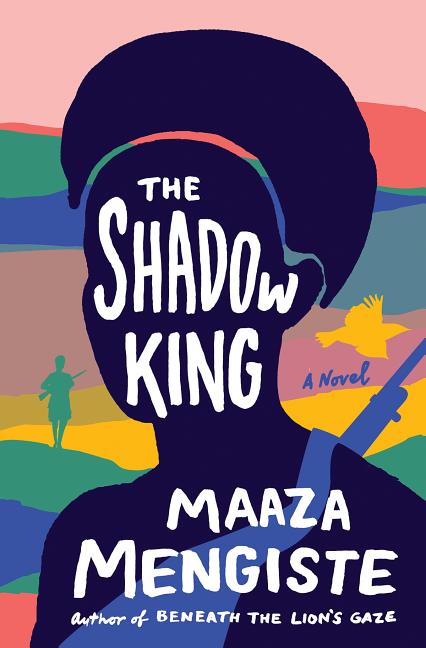
The Shadow King by Maaza Mengiste
(W. W. Norton & Company)
“From its first beautiful sentence—“She does not want to remember but she is here and memory is gathering bones”—Maaza Mengiste’s magisterial The Shadow King drew me into the stark, dusty sweep of the Second Italo-Ethiopian War. Drenched in the blazing light of near-equatorial Africa, a light that feels almost omniscient as it slants through the narrative, the novel focuses most closely on a female servant named Hirut who becomes a hero of the Ethiopian resistance. Hirut’s evolution from servant to soldier is partly influenced by her masters, Kidane and Aster, both fierce patriots, but also by her anger at her position in Ethiopian society. As a young orphan from a non-aristocratic home, she is subject to servitude and rape; she is, as Aster tells her, born to fit into a world made by others. In Mengiste’s hands, this colonial dynamic—between making the world and being forced to inhabit it—extends, brilliantly, into all of the novel’s relationships, from the nuptial fears of a child bride to the tension between a homicidal army commander and the soldiers wavering between disbelief and submission. The Shadow King’s scope is vast, weaving between Ethiopian soldiers, Mussolini’s troops, Emperor Haile Selassie, and a diverse group of women—and it is cinematically written. It questions the theatre of war and what it means to obey; it questions the roles of women in war, and the various battlefields they traverse; it questions the line between witness and perpetrator. It is the finest and most fascinating novel I have read in a long time, and I hope it lands in many readers’ hands.”
–Rhianna W., Powell’s
“A spellbinding, complex, and unforgettable novel that foregrounds the—until now—untold and marginalized perspectives of WWII, centering the women soldiers at the heart of Ethiopia’s fight against Italian forces. This book manages to be both monumental and deeply nuanced, both epic and intricate. There’s no need to fear its size (or scope) because you will inhale this book, compelled by Mengiste’s precise and evocative prose. She renders the reality of war with the utmost clarity, poetry, and the most painfully, delicious detail. I don’t typically reach for historical war novels, but this one I could not put down.”
–Serena Morales, Books Are Magic
*
Happy reading!

